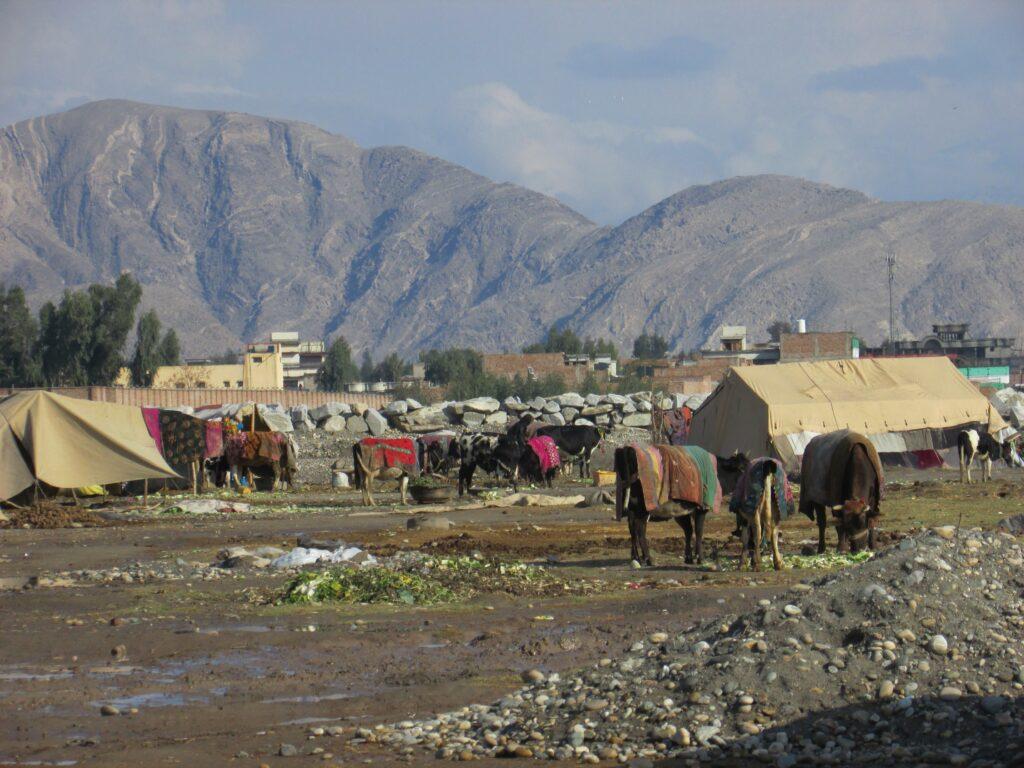JALALABAD (Pajhwok): Nomads, locally known as Kuchis, in eastern Nangarhar province say they have no access to health and educational facilities and their livestock is under threat of total loss as large areas of pastures have been grabbed by powerful figures.
Around 80,000 families of nomads live in Nangarhar province but none of their children attend any schools.
Around 40 families of nomads live in Zangavi area of Jalalabad, capital of Nangarhar province, but they are uneducated from several generations.
However, there is no pasture left for their livestock besides lacking any healthcare or education centers for children.
Most of tents in which nomads live leak during raining, while only a limited number of them are secure against rainfalls.
Jumma Gul Sultakhel, a resident of Zangavi area, said that in the past, they would graze their animals on the riverside in the area, but it was now occupied and powerful men had built houses there.
He said they had large areas for pastures including hillsides and deserts in the province in the past, but now all the regions were either grabbed or government had launched projects there.
Gul Zaman, another nomad, complained that there was no healthcare center in their area and no doctors visited them for their health.
He said they also had no good economy to transfer their patients to city for treatment.
Zabit, another nomad, said neither their ancestors nor their parents were educated and that was the reason their children remained illiterate.
“No doctors come here, we have no clinic, we live here and this is our life, when it is raining, our surrounding become muddy and our tents leak,” he said.
Nik Mohammad Arman, in charge of nomads affairs in Nangarhar, acknowledged pasture areas had been grabbed and nomads lacked health and education services.
He said he was working with the Ministry of Urban Development and Land to resolve shortage of pastures for nomads.
He said the Ministry of Education had also promised to provide mobile schools for nomads next year. Arman said that two mobile health teams were also active in the province which provided services to nomads in 53 areas.
Mds/ma








GET IN TOUCH
NEWSLETTER
SUGGEST A STORY
PAJHWOK MOBILE APP